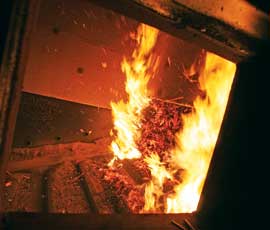Renewable Heat Incentive delays disappoint industry

A last-minute delay to the introduction of the government’s Renewable Heat Incentive has angered industry experts and potentially dented confidence in the sector.
The scheme was due to open for applications last Friday (30 September), but was postponed just hours before due to the Department for Energy and Climate Change’s failure to get the required European Commission clearance.
The Commission was concerned the 2.6p/kWh tariff payment for large-scale biomass was too high and state aid approval would only be given subject to the tariff being reduced. DECC expected confirmation of that proviso “very soon”, but said changing the tariff would require RHI regulations to be amended and submitted to parliament for approval. “We are unable to launch the scheme as a whole until this process has been completed.
“Once we have received written confirmation from the commission, we will make a further announcement about what this means for the large biomass tariff and the timing of the launch. We are committed to launching the scheme as soon as possible to minimise disruption to stakeholders.”
But the NFU was “extremely disappointed” by the delay, especially as scheme details, including payment rates, were announced in March.
“Farmers and growers expecting to benefit from supplying heat using biomass boilers, solar water heating and ground-source heat pumps will be disheartened at this dramatic setback to their business plans,” chief renewable energy and climate change adviser Jonathan Scurlock said.
The government had repeatedly “put off” RHI implementation, resulting in customers delaying purchasing decisions and technology providers hesitating in investing, he said. “Investor confidence has been dented by the lack of details on scheme operation, on top of confusing government signals about its commitment to other renewable energy incentives such as the Feed-in Tariffs and Renewables Obligation.”
Some who had already invested in renewable heat projects could face cashflow problems as a result of the commission’s intervention, Country Land & Business Association president William Worsley added.
He said the proposed RHI rates for large biomass were realistic given the rising cost of woodfuel in local markets. “We fail to see how the bureaucrats in Brussels have a better idea of the real costs of installing large-scale renewable heat systems than our own government.”
